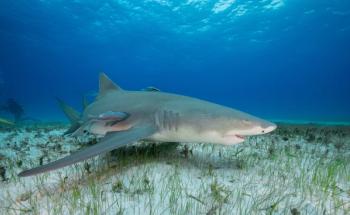
Colorado State launches certificate in Spanish for animal healthcare
Program aims to help animal health providers communicate effectively with non-English-speaking employees in large animal settings.
Shutterstock.com
Colorado State University (CSU) has launched a new undergraduate certificate, "Spanish for Animal Health and Care," to equip students in veterinary and animal science fields to communicate after they graduate and begin working with Spanish speakers in a farm or ranch setting, according to a university release.
The certificate will be offered by the department of Languages, Literatures and Cultures beginning this fall, both online and in person. It is a collaboration between Noa Roman-Muniz, DVM, an associate professor in the department of Animal Sciences and a CSU Extension dairy specialist, and Shannon Zeller and Maura Velázquez-Castillo, both of the Languages, Literatures and Cultures department.
In 2001, Dr. Roman-Muniz was an intern at CSU's Veterinary Teaching Hospital and spent time visiting local dairy farms, where she noticed that managers were giving instructions to farm workers in English, but many of the employees were Spanish speakers who didn't understand what they were supposed to do.
“Communication in animal care is important, because you might be talking about where you give a cow an injection, and that location affects how long the medicine is in the cow's system and how well that medicine will work,” she explains in the release. “So it's about human and animal health and safety, as well as food quality.”
Dr. Roman-Muniz says the specialized medical language needed in animal healthcare covers everything from disease diagnosis and treatment to feeding, milking, birthing and preventive medicine, according to the release.
According to Dr. Roman-Muniz, who is bilingual, sometimes a Spanish speaker who knows a little English, or an English speaker who knows some Spanish, will become a farm's designated translator, but if the person isn't fluent in both languages, misunderstandings can happen.
“We should not be relying on a worker who happens to know a little bit of English,” she says in the release. “For example, if there's only one translator, that person has a lot of power. He might not translate the message accurately, and there can be distrust among coworkers.”
Improving communication can also lead to a better understanding and appreciation of other cultures and those who don't look like you, Dr. Roman-Muniz explains. Miscommunications can also lead to unintended consequences, like an exodus of workers.
“I've gotten calls from farms asking if we at CSU can help find people to milk their cows because several workers just walked out due to a misunderstanding,” she says in the release. “Students sometimes think they can just use Google Translate during their careers, but you can get into trouble. Our students need to be equipped to deal with multicultural populations.”
The coursework will address not only language but culture as well. The first two courses address field-specific language functions and terminology for routine and complex workplace tasks. The third course is an in-depth exploration of word formation mechanisms and terminology in equine care as well as dairy and beef livestock establishments. The final course brings it all together by applying the student's linguistic skills to cultural aspects of diverse workplaces.
Basic familiarity with Spanish is needed before taking the certificate coursework. Those not currently enrolled at CSU can take the program and receive a "master's badge" instead of a certificate upon completion through CSU online.
According to the release, additional plans include extending the Spanish instruction at the College of Veterinary Medicine and Biomedical Sciences. CSU's third-year veterinary students can now take a 20-hour practicum in Spanish language instruction, which is an intensive language immersion program, the release states.
For more information about the program, email
Newsletter
From exam room tips to practice management insights, get trusted veterinary news delivered straight to your inbox—subscribe to dvm360.






